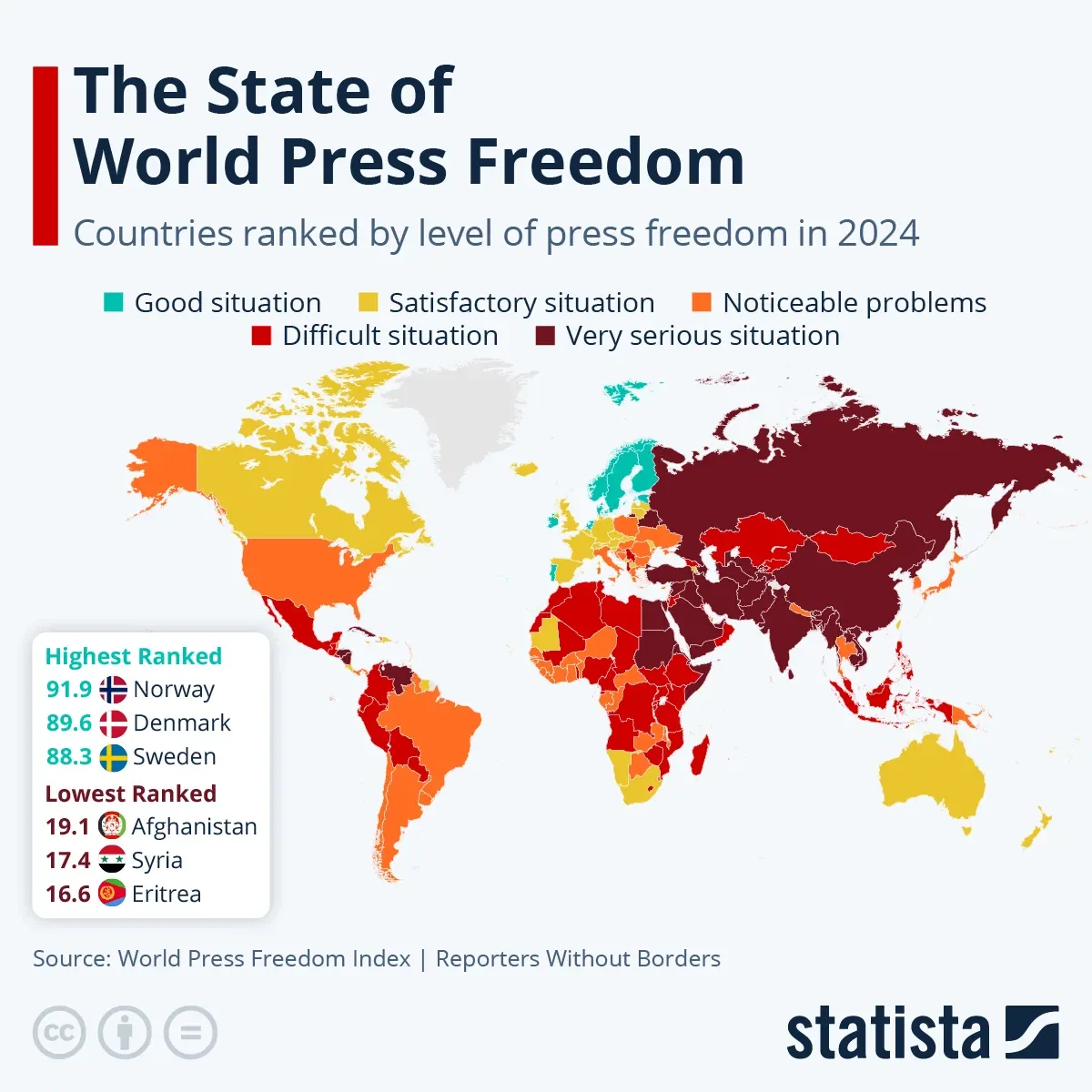Where Data Tells the Story
© Voronoi 2025. All rights reserved.

The 2024 World Press Freedom Index, compiled by Reporters Without Borders (RSF), was released today. This year, the agency highlights a “worrying decline in support and respect for media autonomy and an increase in pressure from the state or other political actors.” This is based on the fact that, of the five indicators used to compile the ranking, it is the political indicator that has fallen most, with a global average decline of 7.6 points.
Out of the 180 countries and territories analyzed, some 138 places had a majority of their respondents say that political actors in their countries were involved in disinformation or propaganda campaigns. This involvement was described as “systematic” in 31 countries.
The report writers also highlight the lack of political will on an international level to enforce protection of journalists, with particular reference to the war in Gaza, which has been marked by a record number of violations against journalists and the media since October 2023. According to the report, more than 100 Palestinian reporters have now been killed by the Israel Defence Forces, including at least 22 in the course of carrying out their journalistic activities.
Taking a look at wider trends, this chart shows that 36 countries were listed in the worst category in the index - where there exists a “very serious” situation of the press. 49 countries fall under the “difficult” category and 50 in the “problematic" group, while 45 have either a “satisfactory” or “good” situation. Norway is once more at the top of the list, ranking in first place for the eighth year running, followed by Denmark and Sweden. The final trio, considered the most repressive countries for the press, are Afghanistan (position 178), Syria (179) and Eritrea (180). The report states: “The last two countries have become lawless zones for the media, with a record number of journalists detained, missing or held hostage.”
The United States ranked 55th in 2024, having dropped ten positions. RSF notes that the country is experiencing growing distrust in the media, partly driven by antagonism from political officials, while there have also been cases of local law enforcement having raided newsrooms.
Reporters Without Borders have compiled the index annually since 2002. The agency devised a new methodology in 2021 with the help of a panel of experts from the media and academic world. This year, 180 countries and territories were analyzed based on five indicators covering political context, legal framework, economic context, sociocultural context and safety.